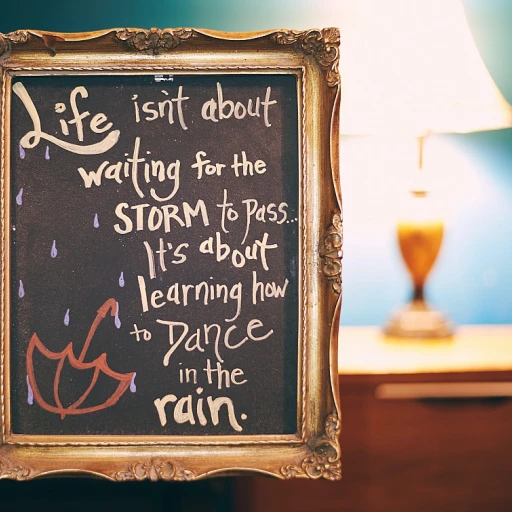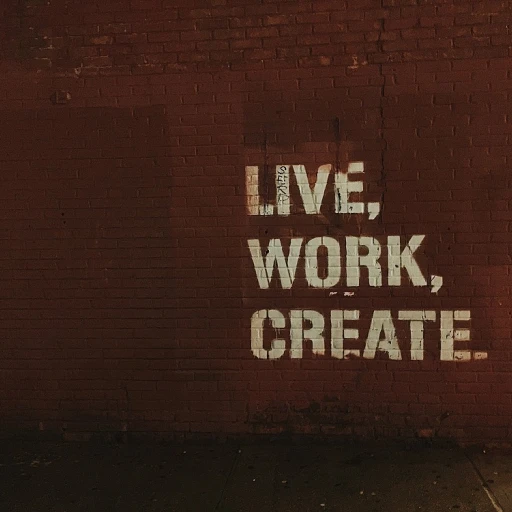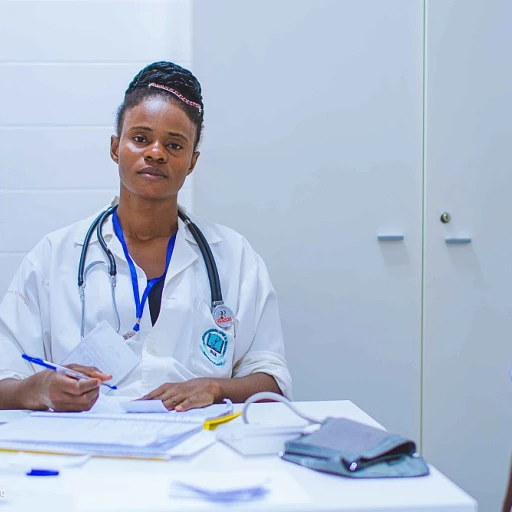
Understanding the Role
Grasping the Essentials of Childcare
When preparing for a childcare interview, it's crucial to have a thorough understanding of the role you're applying for. Within this sphere, you're entrusting the care and early development of children, which comes with a variety of responsibilities and duties. This encompasses attending to the children's basic needs as well as fostering a nurturing environment conducive to their growth. To effectively navigate the interview, focus on the specific childcare setting you're interested in, whether it's daycare or an early childhood education program. Understanding the distinct features of the age group you'll be working with will help you provide concrete examples of how your skills and experience align with the job responsibilities. Demonstrate your expertise in creating an age-appropriate, safe, and engaging environment for children. As you prepare your answers, consider emphasizing your experience with problem solving, conflict resolution, and your capability to provide the best care. For instance, articulate how you might handle challenges during a busy time at the daycare. Consider discussing how you ensure the well-being of children under your care, particularly citing examples where you successfully fostered a nurturing and inclusive environment. Remember, your responses should highlight your comprehensive understanding of the core functions of the job. If you are looking for further insights into mastering interview questions, you might find our resource on strategic interview preparation useful.Common Interview Questions
Common Questions You Might Face
While preparing for a childcare interview, having a grasp of the types of questions you might encounter can greatly enhance your readiness. Understanding the nuances of these queries will help demonstrate your expertise and dedication to nurturing and developing children in a supportive environment. Interviewers often use these questions to gauge your skills, your genuine passion for early childhood education, and how well you can manage certain scenarios. Here's a breakdown of common questions and strategies to answer them effectively:- What inspires you to work with children?
This question probes your motivations and dedication to childcare. An effective answer conveys personal anecdotes or experiences that showcase your genuine passion. For instance, you might describe a moment when you helped a child reach development milestones or fostered a nurturing environment. - How would you address conflict resolution in a daycare setting?
Daycare environments often require strong problem-solving skills. Share examples from your previous experience where you successfully mediated disputes among children, ensuring age-appropriate conflict resolution strategies. Emphasize the importance of maintaining peace and harmony, respecting each child’s needs and character. - Describe an experience where you implemented an educational program.
Highlighting a time where you've initiated or carried out an educational program showcases your proactive approach. Explain how the program was developed, its execution, and the positive impact it had on child development. Details such as age group considerations and best practices should be included. - What steps do you take to ensure a safe environment for children?
Safety is a top priority in any childcare job. Discuss your strategies for maintaining a safe space, such as daily safety checks, teaching children about safety practices, and handling emergencies calmly and effectively. - How do you communicate with parents about their child's progress?
Open communication with parents is essential in childcare. Share how you provide feedback, maintain regular updates, and work collaboratively with parents to support their child’s growth and development, ensuring transparency and trust.
Behavioral Questions
Exploring Behavioral Dynamics
In a childcare interview, understanding how you handle real-life situations is crucial. Behavioral questions are designed to assess your problem-solving skills, conflict resolution abilities, and how you create a nurturing environment for children. These questions often start with phrases like "Tell me about a time when..." or "Describe a situation where..."
Here are some common behavioral questions you might encounter:
- Handling Conflict: "Can you describe a time when you had to manage a conflict between children? What steps did you take to resolve it?"
- Problem Solving: "Tell me about a situation where you had to adapt your approach to meet the needs of a child. How did you ensure the child felt supported?"
- Creating a Positive Environment: "Describe how you have contributed to creating an age-appropriate and nurturing environment for children in your previous roles."
When answering these questions, it's important to provide specific examples from your past experience. For instance, when discussing conflict resolution, you might explain how you mediated a disagreement between children by encouraging them to express their feelings and guiding them towards a mutual understanding.
These questions not only help interviewers gauge your experience and skills but also your ability to apply best practices in early childhood education. Preparing thoughtful responses will help demonstrate your capability to handle the dynamic and sometimes unpredictable environment of childcare.
For more insights on essential questions to ask in a babysitter interview, you can explore this resource.
Questions About Child Development
Demonstrating Knowledge in Child Development
Understanding child development is crucial for any position in childcare, from roles in daycares to more specialized jobs in early childhood education. Interviewers will often delve into candidates' knowledge of age-appropriate care and how it affects their strategies in nurturing a child's growth. When preparing for a childcare interview, expect questions that explore your understanding of the developmental milestones children experience. You might be asked to explain how you would tailor activities to fit specific age groups or how you would adapt a program to support developmental needs. Sample Interview Question: “Can you describe how you would design an activity to foster the development of fine motor skills in preschool-aged children?” Example Answer: To answer this, you could highlight experience with creating engaging, hands-on activities that promote skill development. For example, you might describe an art project using scissors and glue textures, emphasizing how such activities aid in enhancing hand-eye coordination and dexterity. Additionally, it's not uncommon for interviewers to ask about handling specific developmental challenges. This could include managing behaviors associated with different stages of development, which requires not only a solid understanding of child development but also adept problem-solving and conflict-resolution skills. Reflect on experiences where you've effectively addressed developmental issues or worked closely with parents to ensure a child’s growth is monitored within the child care environment. Examples of communicating developmental progress or concerns provide insight into your ability to engage with parents effectively and promote a nurturing environment for children. Overall, demonstrating a strong grasp of child development and age-appropriate best practices will help set you apart during a childcare interview.Safety and Emergency Preparedness
Ensuring Safety and Emergency Readiness
When preparing for a childcare interview, it's vital to be equipped with insights related to safety and emergency preparedness. Employers will prioritize candidates who can demonstrate an understanding of best practices in maintaining a safe and nurturing environment for children. During the interview, expect questions that gauge your ability to handle emergencies or unexpected situations. For example, you might be asked, "Can you describe how you would handle an emergency situation involving one of the children?" Your answer should reflect prompt decision-making skills and an age-appropriate approach to calming and ensuring the safety of the children involved. Here are some sample interview questions to anticipate:- How do you ensure compliance with the safety procedures in place at a daycare?
- *When answering, mention familiarity with safety protocols and how your experience has prepared you to implement these standards.*
- Describe a time when you resolved a conflict involving young children.
- *Your sample answer should highlight your conflict resolution skills, emphasizing problem solving in a way that's understandable and comforting to children.*
- What steps have you taken in your previous experience to prepare for potential emergencies?
- *An example answer might include discussing regular training you’ve undergone or any plans you've developed that ensured everyone's readiness for potential scenarios.*
Cultural Sensitivity and Inclusion
Embracing Diversity and Cultural Inclusion
During a childcare interview, showcasing your awareness and commitment to cultural sensitivity is crucial. In environments where children from diverse backgrounds come together, it is essential to create a nurturing environment that respects and celebrates differences.
Interviewers may pose questions aimed at gauging your understanding and experience with cultural inclusion:
- How have you incorporated cultural diversity in your childcare practices?
- Can you describe a time when you addressed a conflict arising from cultural misunderstandings?
- What steps do you take to stay informed about best practices in cultural sensitivity for early childhood education?
A strong answer might include examples of activities or programs you've organized that expose children to different cultures. Discuss how these initiatives help foster an inclusive environment where every child feels valued.
For this, recount a situation where you effectively utilized conflict resolution skills to mediate between children or parents. Highlight the strategies you used to ensure positive outcomes.
Demonstrate your commitment to continued learning, perhaps by mentioning professional development courses or reading materials you engage with to stay updated on this important topic.
Your ability to understand and promote cultural sensitivity in a childcare setting not only enhances the care you provide but also strengthens your profile as a capable child development professional. Adopting an inclusive approach is part of delivering high-quality care that supports every child's growth and well-being.













